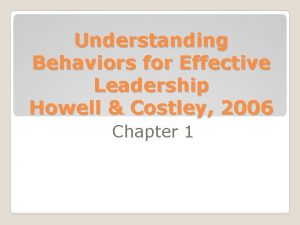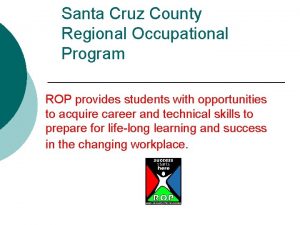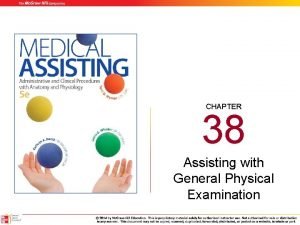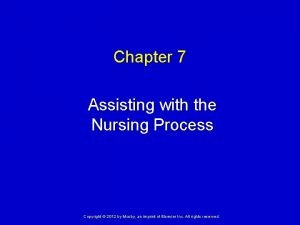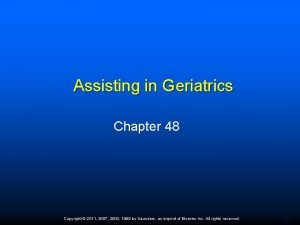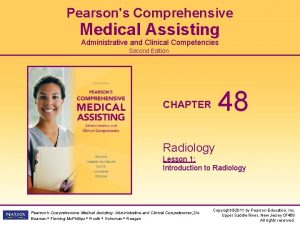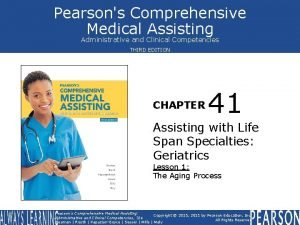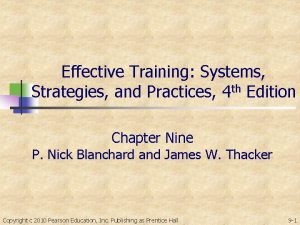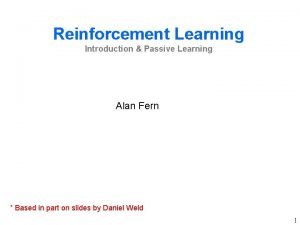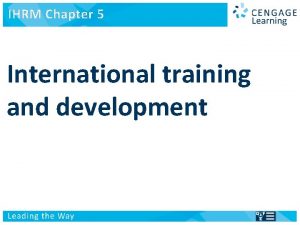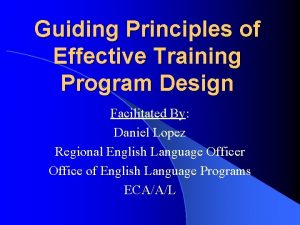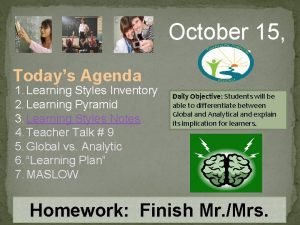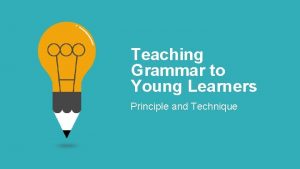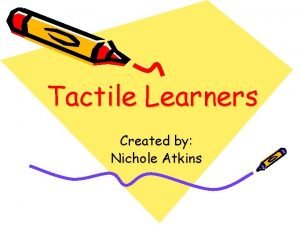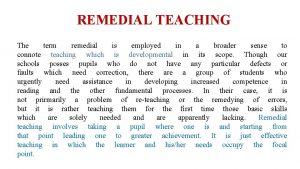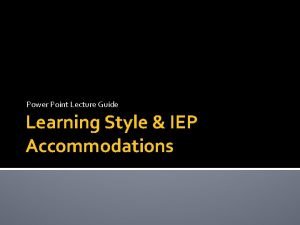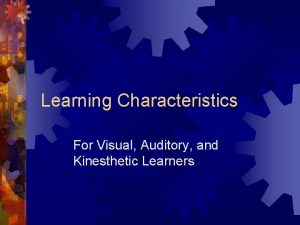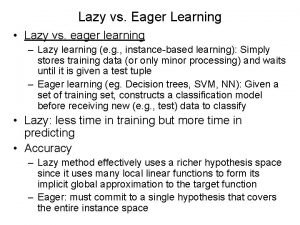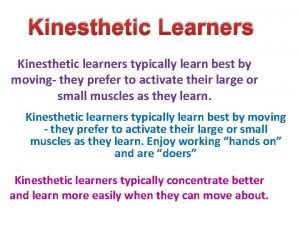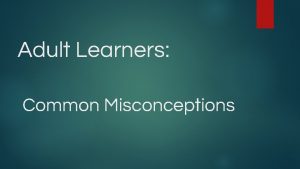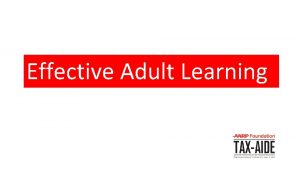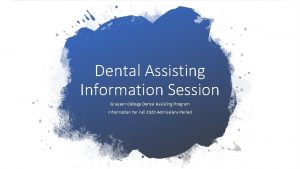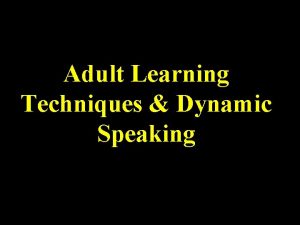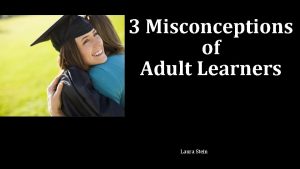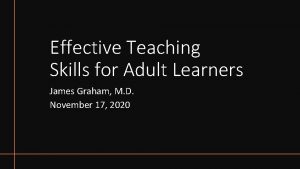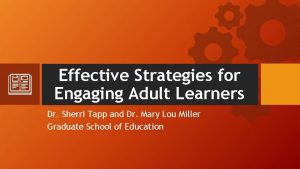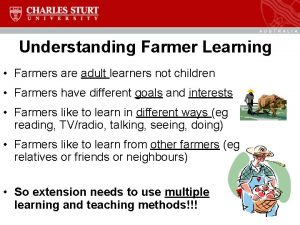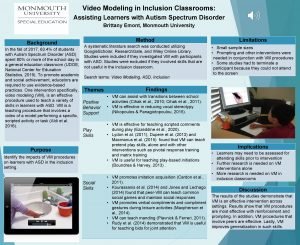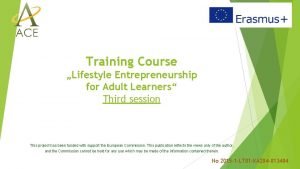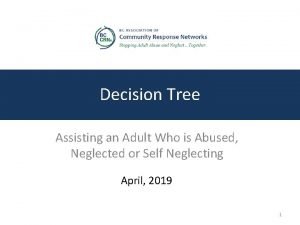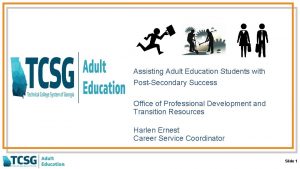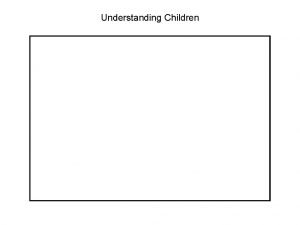Effective Training Understanding and Assisting Adult Learners Karen






























- Slides: 30

Effective Training Understanding and Assisting Adult Learners Karen Vaias, MLIS & Jeff Teichmann, MLIS

Pedagogical

Andragogical

The Adult Learner is… Self Directed

The Adult Learner is… Experienced & Knowledgeable

The Adult Learner wants to… Learn in Order to Succeed

The Adult Learner wants… Immediate, Real-World Applications

The Adult Learner is… Influenced by Many Internal Factors

Feelers Are people-oriented Focus on feelings Prefer lack of structure Share opinions

Observers Watch and listen Are reserved and quiet Are on-target with comments Learn through discovery

Thinkers Prefer logic and reason Share ideas and concepts Analyze and evaluate Work independently

Doers Are activity-oriented Dominate group activities Prefer real-world applications Enjoy clear, concise presentations

Perceptual Modalities

What else affects learning?

Cognitive Overload

Origami!


Instructional styles • Factors – Personal Biases – Environment – Content • Preferred style

Personal biases

Environment

Content

Preferred Style Seller Professor Coach Entertainer

Preferred Style Seller • Task oriented • Taskmasters • Main concern = content • Informal & rigid

Preferred Style Coach • Learner oriented • Facilitators • Main concern = results • Informal & flexible

Preferred Style Professor • Instructor oriented • Lecturers • Main concern = delivery • Formal & rigid

Preferred Style • • Entertainer Relations oriented Role Model Main concern = feelings Formal & flexible

Seller • • Task oriented Taskmasters Main concern = content Informal & rigid Learners Preferred Style Coach • • Content Learner oriented Facilitators Main concern = results Informal & flexible Learning Entertainer • • Instructor oriented Lecturers Main concern = delivery Formal & rigid Instructor Professor Relations oriented Role Model Main concern = feelings Formal & flexible

Learners Conclusion Learning Instructor Content

Resources • Lawson, Karen. The Trainer’s Handbook, 2 nd ed. , 2006. Pfeiffer, San Francisco, CA. • Instructional Style Diagnosis Inventory. From The Trainer’s Handbook.

Effective Training Understanding and Assisting Adult Learners Karen Vaias, MLIS kvaias@bernards. org Jeff Teichmann, MLIS jteich@rci. rutgers. edu
 Assisting in microbiology and immunology
Assisting in microbiology and immunology Understanding behaviors for effective leadership
Understanding behaviors for effective leadership Medical assistant program rop
Medical assistant program rop Discuss the procedures in welcoming guests on arrival
Discuss the procedures in welcoming guests on arrival Chapter 42 assisting in other medical specialties
Chapter 42 assisting in other medical specialties Assisting with a general physical examination
Assisting with a general physical examination Chapter 6 dental assisting
Chapter 6 dental assisting Advertisement verb
Advertisement verb Chapter 5 assisting with the nursing process
Chapter 5 assisting with the nursing process Chapter 31 assisting in a medical emergency
Chapter 31 assisting in a medical emergency Chapter 41 assisting in geriatrics
Chapter 41 assisting in geriatrics Juliette southard
Juliette southard Pearson's comprehensive medical assisting
Pearson's comprehensive medical assisting Chapter 41 assisting in geriatrics
Chapter 41 assisting in geriatrics Chapter 42 assisting in other medical specialties
Chapter 42 assisting in other medical specialties Iso 26000 7 core subjects
Iso 26000 7 core subjects Effective training systems strategies and practices
Effective training systems strategies and practices Preamble of teachers
Preamble of teachers A government program for gifted students in the philippines
A government program for gifted students in the philippines Active and passive learners
Active and passive learners Ihrm training and development
Ihrm training and development Definitionstraining
Definitionstraining Principles of effective training
Principles of effective training Global vs analytical learners
Global vs analytical learners Teaching grammar to young learners
Teaching grammar to young learners Nichole atkins
Nichole atkins 10 objectives of remedial instruction
10 objectives of remedial instruction Global vs analytical learners
Global vs analytical learners Visual learners characteristics
Visual learners characteristics Eager learner vs lazy learner
Eager learner vs lazy learner Kinesthetic learners definition
Kinesthetic learners definition

